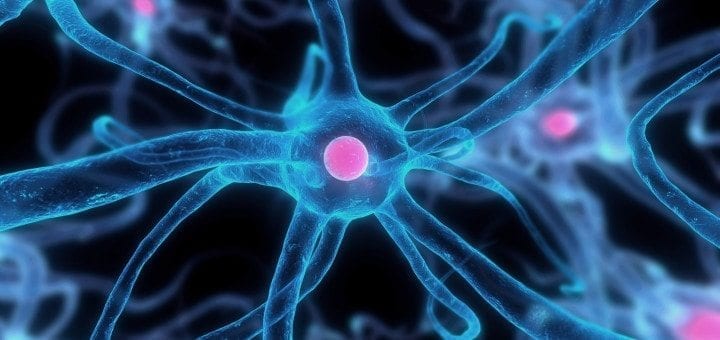Fish Oil and Alzheimer’s: The Good and Bad News
This past Sunday, scientists announced the results of two research studies regarding omega-3, cognitive health, and aging. In both studies, DHA was the omega-3 of choice, because it plays a crucial role in brain function.
I’ll start with the bad news: an 18-month study indicates that for people in the early stages of Alzheimer’s disease, with mild or moderate symptoms, it’s already too late for omega-3 to slow the decline of cognitive ability. This is in agreement with a previous study from Sweden demonstrating that while fish oil may be beneficial for people in the early stages of Alzheimer’s, that effect disappears later on.
Some maybe-good news: Participants in the same trial who didn’t have the e4 version of the APOE gene – which increases the risk of developing Alzheimer’s – did show slight improvement. For the 20 to 30 percent of people with Alzheimer’s disease who lack this key gene, this is a topic to continue to watch as more research emerges.
The real good news: A double-blind, placebo-controlled, and multi-center study (in other words, producing data with virtually ironclad accuracy) had much more encouraging results. After six months of treatment of 485 healthy older people who reported slight memory decline, the patients who took DHA supplements experienced a significant improvement in scores on a basic memory test. Karin Yurko-Mauro, PhD, the scientist who led the study, said, “The benefit is roughly equivalent to having the learning and memory skills of someone three years younger.” It was probably tricky to find your car keys three years ago, too, but hey – that’s a start. While the chief medical and scientific officer of the Alzheimer’s Association, William Thies, PhD, said the association was not yet prepared to recommend DHA supplements; it’s worth noting that early Alzheimer’s detection is tricky, so it’s at least a good precaution. Plus, a recent five-country study showed that high fish consumption reduces the risk of dementia by 20%. Fish oil is low-risk, too: neither of the new studies reported any serious adverse effects of treatment. The second study even found that the DHA patients experienced a reduction in heart rate, which is rarely a bad thing.
There’s still one important caveat to discuss. In the second study, with the positive results, participants were receiving 900 mg of DHA daily. That’s the equivalent of five Nature Made fish oil capsules, which may not even be fully potent, seeing as the oil is old. (That’s why it’s enclosed in capsules. If you don’t believe me, slice one open and take a good whiff.) Plus those capsules have a good chance of “repeating” on you (to put it diplomatically) later in the day. So stick to Omega Cure – two teaspoons contain 1,005 mg of DHA, plus an equal amount of EPA, which can help out elsewhere in your body, especially with inflammation (arthritis relief, anyone?). Omega Cure just might be the freshest, tastiest fish oil out there, so it will go down easy, making both your brain and your taste buds happy.
Sources:
1. HealthDay News: Omega-3 Fatty Acid Falls Short in Alzheimer’s Trial.
2. Science Daily: Mixed Results from Trials of DHA is Alzheimer’s Disease and Age-Related Cognitive Decline.
3. MedPage Today: Fish Oil Fails to Slow Alzheimer’s Decline.
Popular posts
-
Dose, Omega-3
How Much Omega 3 Per Day Should I Take?
If you pop a daily fish oil capsule – or drink a teaspoon of cod liver oil most mornings – it can be tempting to think you're all set in...12 months ago -
Dose, Omega-3
Liquid Omega-3 Fish Oil Vs. Capsules: Which Is More Effective?
When we first launched Omega Cure® liquid cod liver oil in 2006, customers started reporting greater benefits than we anticipated based on research studies. Why did this oil seem to...12 months ago -
Heart Health
Does Taking Fish Oil Lower Cholesterol?
Many people believe that incorporating omega-3s into their diet will solve their cholesterol woes. But the truth is much more nuanced; it's not as simple as taking a daily fish...2 years ago
Related posts
-
Bone Health, Brain Health, Heart Health, Immune Health
The 4 Benefits of Iron Intake and Aging
Iron is one of those nutrients where balance is key. Your body needs enough to function properly, but too much can cause problems. As we age, iron levels become even...3 months ago -
Brain Health
How to Manage ADHD in Adults Without Medication
In recent years, more adults have been speaking up about their struggles with ADHD—recognizing that it’s not just a childhood condition but something that continues to affect daily life well...4 months ago -
Omega-3
The Relationship Between Vitamin D and Skin Health
Vitamin D, often called the "Sunshine Vitamin," is essential for many aspects of health, but one of its most overlooked benefits is its role in skin health. While we often...4 months ago









